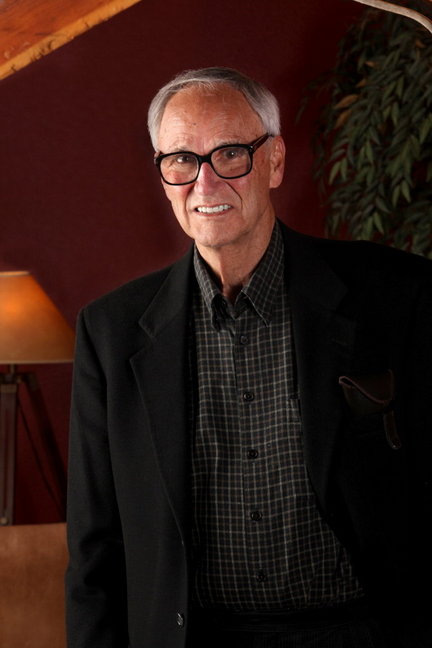Encyclopedia Dubuque
"Encyclopedia Dubuque is the online authority for all things Dubuque, written by the people who know the city best.”
Marshall Cohen—researcher and producer, CNN
Affiliated with the Local History Network of the State Historical Society of Iowa, and the Iowa Museum Association.
WENDT, Richard
WENDT, Richard. (Dubuque, IA--Portland, OR, Aug. 14, 2010). Jeld-Wen Inc. cofounder Wendt built his privately held windows-and-doors company into a $2 billion-a-year business with 20,000 employees in 22 countries.
Wendt gave an estimated $2 million or more to Oregon political causes in the last two decades. Wendt and his wife, Nancy, also donated to charitable and academic institutions, including $32 million to the UNIVERSITY OF DUBUQUE.
One of Oregon's most prominent businessmen, worth perhaps $750 million, Wendt often went unrecognized even in his home of Klamath Falls. He drove an old Jeep Cherokee and hiked in torn Hush Puppies for years before friends bought him hiking boots. Stories have suggested that security officers kicked him out of his own mills.
Wendt moved to Klamath Falls in 1957, when CARADCO where his father worked, dispatched him to turn around a struggling mill. Wendt made the mill profitable, but Caradco managers decided to sell it. Wendt and four other employees bought the plant at auction in 1960, forming the company that became Jeld-Wen. The name combines the first names of his sister, Jewel; his mother, Evelyn; his father, Lester, and his own nickname, Dick; with Wen abbreviating their surname.
Jeld-Wen revolutionized production of wood-framed windows, which had largely been made in the Midwest out of Ponderosa pine logs shipped from the West. Instead, the company made door parts in the West, near timber supplies, and sent them to window factories near Eastern markets -- shipping 35 percent less wood. The difference was made into wood fiber, applying resin and hot-pressing it -- to make door skins. The molded-skin product, also made by Masonite, became the nation's most popular interior door.
Jeld-Wen expanded by building plants and then by acquiring numerous companies, including Pozzi, Norco and Caradco, the company that Wendt's father ultimately headed. Consistent with Wendt's understated character, subsidiaries retained their names -- until managers realized they were advertising 27 brands.
Wendt stepped down as board chairman early in 2010, succeeded by Robert Turner, a longtime Jeld-Wen manager and board member. Wendt's son, Rod, has been chief executive since 1992.
Harboring a dream of full national employment, Wendt quietly assembled a network of temp agencies that hired tens of thousands. In 1990, Jeld-Wen gave $150,000 toward a ballot measure Wendt favored to place welfare and unemployment recipients in subsidized private-sector jobs. The initiative passed, leading to a program known as Jobs Plus that placed thousands in subsidized positions. NextJob is one of a group of companies including Hire Calling Co., SOS Staffing and Employment Trends that Wendt founded or bought, putting to work more than 70,000 people a year. He was also involved in Trendwest Resorts and JWTR, a large Northwest timber company.
Wendt founded the American Institute for Full Employment in 1994. He and his wife made large contributions to Republican political campaigns. In 2002, Wendt offered $75 million to the Oregon Institute of Technology in Klamath Falls to go private. But college administrators decided it wasn't enough to make up for state funding. Wendt served on an OIT advisory board and on boards of other enterprises including, Sky Lakes Medical Center in Klamath Falls. He and his wife endowed chairs at three Oregon universities.


